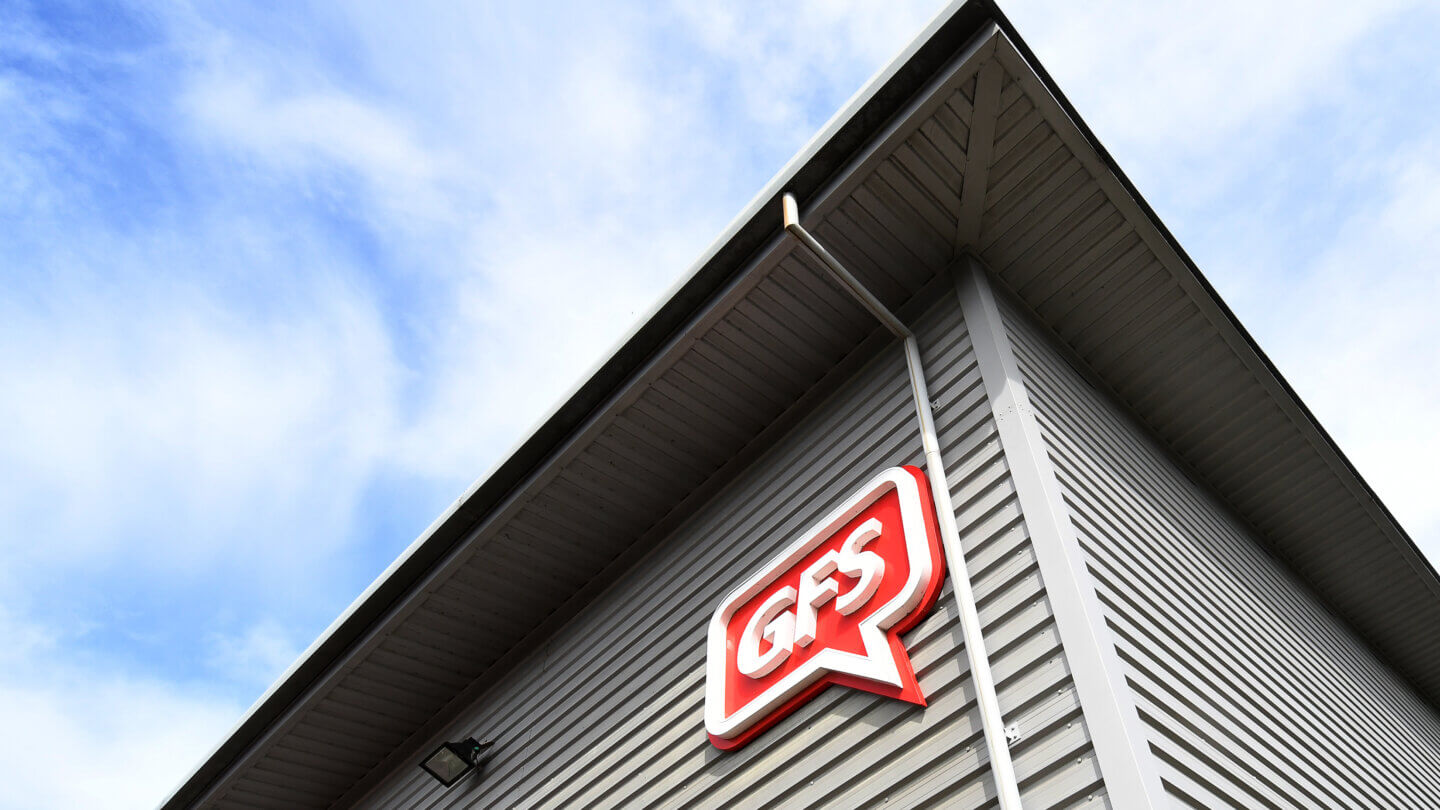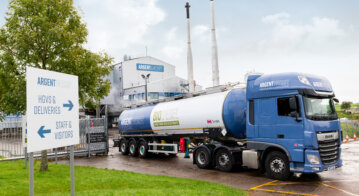E-commerce retailers need to keep up with customer expectations – and, so should their 3PL providers (if they want to stay in the game!)
The bar for online shopping experiences has never been higher than now. For the last few years, retailers have been forced to shift their focus to their e-commerce offerings just to remain competitive. According to the International Trade Administration (ITA), the UK has the third largest e-commerce market in the world after China and industry revenues are expected to have an annual average growth rate of 12.6 per cent by 2025. Customers demand more than just the convenience of browsing and purchasing products online, and this expectation is passed on to the services the retailers use.

Source: GFS
Third-party logistics (3PL) companies play a pivotal role in optimising various aspects of the logistics process, from warehousing and inventory management to transport and distribution. This means they directly impact e-commerce companies’ ability to meet their customers’ evolving expectations. It is, therefore, imperative for 3PL providers to stay abreast of the dynamic preferences of online shoppers and equip themselves with the necessary tools and strategies to facilitate clients’ requirements.
What today’s online shoppers are looking for
-
More delivery options
Offering a comprehensive set of delivery options, like same-day, next-day or nominated delivery, means that retailers can satisfy diverse preferences and provide a personalised delivery experience. A recent study from GFS found that 45 per cent of retailers see expanding delivery options as the number one way they can address customer expectations. Inadequate delivery options cost an estimated £7.2 billion in aborted transactions annually and, given the choice, 51 per cent of consumers would prefer to be given multiple delivery options, even if it meant paying extra.
-
Faster shipping
Huge e-commerce players like Amazon dominate in shipping times, but offering high-speed delivery remains a key growth driver for any merchant. A 2023 survey found that 25% of Under-45s consider delivery speed the most important when making an online purchase and choosing a delivery option. It also found that consumers across demographics rank Next Day, Nominated Day and Express Delivery as the top 3 delivery options. 3PLs must be able to offer a wide choice of fast and premium options to keep pace with industry expectations.
-
Sustainability
Particularly with younger consumer bases that are more accustomed to online shopping, sustainability and transparency are becoming more of a priority. E-commerce businesses embracing sustainability practices, such as eco-friendly packaging, carbon offsetting and supporting ethically sourced products, are witnessing a surge in customer loyalty. Prioritising sustainable initiatives not only resonates with environmentally conscious consumers, but also bolsters brand reputation and long-term growth potential, a trend that will continue as climate awareness grows.
-
Easy returns
Research has found that consumers rank a difficult returns process as one of their top five frustrations, and one in two UK shoppers are willing to pay extra for a hassle-free experience. However, it is not a priority for retailers, who view outbound delivery services as the primary focus of operations. Bridging this disconnect requires concentrating on improving the returns and inbound proposition to ultimately increase customer satisfaction and loyalty. It will also reduce the likelihood of basket abandonment due to concerns over returns.
3PLs must improve their services to remain competitive
If e-commerce businesses cannot live up to customers’ expectations, there are severe financial consequences. Research by independent e-commerce analysts, Retail Economics, found that one in three baskets are abandoned at checkout due to inadequate delivery options, resulting in approximately £31 billion per year in lost sales. But with high operational costs, lack of in-house technical skills and the multiple delivery carriers necessary to offer high-end services, retailers find it challenging to meet consumer demands independently. The same goes for smooth returns processes, as providing these involves complexities such as reverse logistics, restocking and managing inventory updates.
Many retailers focus on improving their final mile delivery and returns services by evaluating their choice of 3PL partners. It is imperative that fulfilment service providers adapt to requirements for speed, cost and sustainability, or risk losing business. They must expand the range of delivery services offered, both on outbound and inbound returns, so the luxury of choice and convenience can be passed on to shoppers. The traditional way of achieving this would be to onboard and integrate more carriers. However, it can be costly, complex and time-consuming to integrate new services into IT systems and onboard and manage new carrier partners. Plus, such an approach is challenging to scale, as every new carrier or service added has an incremental impact on operational cost, overhead and technical complexity.
A smarter way is to partner with a single multi-carrier partner that can offer a breadth of services for outbound and inbound returns and the technical capabilities for quick and easy integration. By teaming up with just one final mile service provider, 3PLs can extend and enrich their services in order to stand out. This gives access to the breadth of services required for current and future needs all under one contract, one relationship and a one-time technology integration. More importantly, such a partnership allows them to demonstrate to e-commerce brands that they understand the demands of the digital shopper for delivery choice and convenience and its impact on the final purchase decision.
Premium multi-carrier partners offer cost-effective, diverse delivery and returns options, ultimately reducing basket abandonment rates, increasing customer satisfaction and creating growth opportunities. Specialised knowledge, industry connections and economies of scale also enable them to provide a wider array of sustainable options at a potentially lower cost. Further options include electric vans, click-and-collect options and carbon-neutral shipments via offsetting programs. These cater to increasingly environmentally conscious consumers while simultaneously fostering a positive brand image.
Consider GFS
In 2024, a single-carrier approach for delivery is no longer feasible, as the dynamic landscape of e-commerce demands a more versatile and customer-centric approach. Leading multi-carrier management company GFS understands how crucial it is for e-commerce 3PLs to be able to bring their service offerings in line with consumer expectations. Doing so creates a competitive advantage for their retailer customers and themselves as service providers.

Source: GFS
As the industry’s first and now largest multi-carrier provider, GFS provides a combined offering of multi-carrier technology and multi-carrier services, all under one roof. Furthermore, their proprietary Enterprise Carrier Management (ECM) suite comes as part of the service, giving its customers the technology tools they need at no additional cost. GFS customers have access to 1000+ carrier services across more than 220 destinations, offering a diverse range of delivery options, plus automated label printing and tracking to expedite order fulfilment. Integration with major e-commerce platforms, such as Etsy, WooCommerce, Shopify, Amazon and eBay, facilitates multi-channel order fulfilment and dispatch.
GFS’ commitment to sustainability shines through via the green shipping alternatives they offer: carbon-neutral services, electric van deliveries and parcel lockers, to name but three. Additionally, an extensive network of 320,000 drop-off points simplifies returns, fostering all-important customer satisfaction and loyalty.
To find out more about how GFS can help enhance your 3PL business with multi-carrier services and technology, contact one of their experts today.









